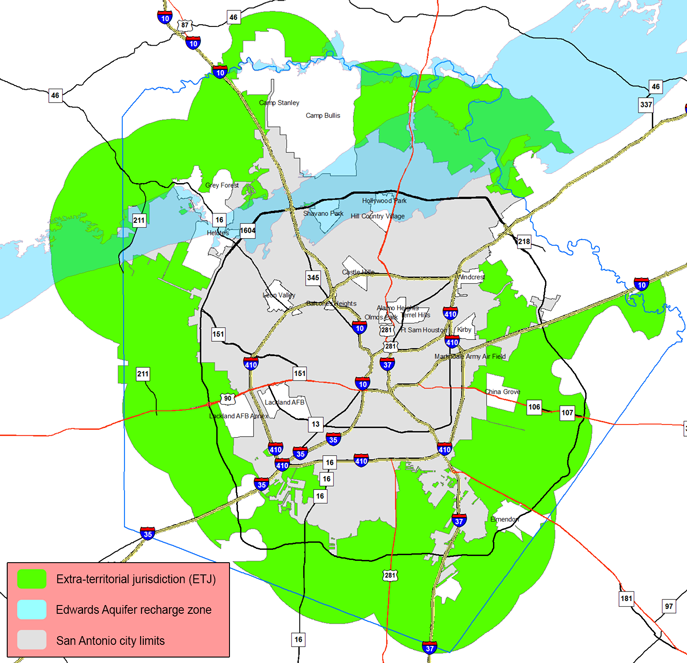May 4, 2023
A bill that would increase contamination in your drinking water, Senate Bill 2037, has passed in the Senate and is headed to the House Committee on Land & Resource Management.
Once a hearing is scheduled (likely soon), we will ask Sierrans to submit comments opposing the bill on the House Witness Registration page.
How would this bill affect San Antonio?
Backed by a coalition of land developers and builders, this legislation will enable developers to pave over San Antonio's aquifer recharge zone with damaging amounts of impervious cover. It accomplishes this by nullifyng the impervious cover limits that our Edwards Aquifer Recharge Zone and Watershed Protection ordinance imposes on land development projects in our extra-territorial jurisdiction (ETJ).
What's at stake?
Studies show that high levels of impervious cover cause contamination of stormwater runoff, which enters the Edwards Aquifer in its recharge zone. We might no longer get clear, clean drinking water from the aquifer and costly water treatment plants could become necessary in the future.
Although this bill affects only cities' ETJs, that is where most development of raw, natural land occurs. San Antonio has 46,000 acres of recharge zone within its ETJ (see map below).
The bill is unfair to taxpayers
The taxpayers of San Antonio have spent hundreds of millions of dollars buying 175,293 acres of land and conservation easements to protect the Edwards Aquifer. This bill will give recharge zone developers, the polluters, a free ride by exempting them from impervious cover limits.
Map of San Antonio's ETJ

The myth of "Regulation without Representation"
This bill is founded on the premise that, because residents in the ETJ cannot vote in city elections, they shouldn't be subject to city regulations. There are several flaws in this premise.
First, limited-liability corporations, and homebuilding corporations from places like California, Michigan and Dallas, can't vote in city elections anyway. The vast majority of ETJ residents have no city regulations to comply with. San Antonio’s tree and aquifer protection ordinances apply only to developers/builders.
Second, ETJ residents can't vote because they don't pay city taxes. Yet, they are free to take advantage of natural areas, city parks, streets and venues that city taxpayers paid for.
Third, there simply is not any "regulation without representation". ETJ residents are represented by their County Commissioners on ETJ regulations. Any city development codes applicable to the ETJ are authorized by "interlocal agreements" adopted by their County Commissioners Court (example: Comal County/CoSA agreement).